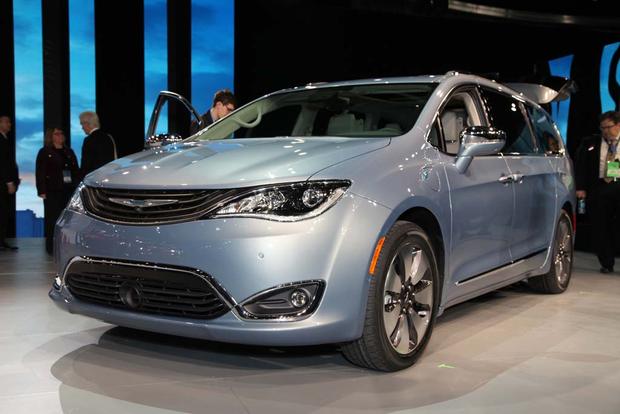-
2018 Buick Enclave “Avenir” will have ionic air purifier - April 12, 2017
-
Lease a Luxury Car for Less Than You Think - April 5, 2017
-
Shopping for a Car When Your Credit is Low - March 31, 2017
-
Aston Martin Closer to Unveiling Second-Generation Vantage - March 21, 2017
-
2017 Bentley Bentayga SUV: Offroad for $238,000 and Up - March 14, 2017
-
Pagani Huayra is Finally Here, Only $2.4M - March 9, 2017
-
Mercedes AMG E63 – For When Your Wagon Needs Drift - February 6, 2017
-
2018 Audi Q5 SUV: Enhanced Performance - January 30, 2017
-
2018 Toyota Camry Due in Late Summer - January 27, 2017
-
2018 Dodge Challenger SRT Demon Will Outstrip Hellcat - January 23, 2017
D.C. Summit Focuses on Consumer Credit
A recent huddle in Washington revealed some fundamental questions about how to offer Americans the credit that they need to make larger purchases that are necessary for a basic quality of life. The National Bankers Association, as well as various groups like the Competitive Enterprise Institute and Hispanic Leadership Fund met this month on Capitol Hill to discuss whether the current system of lenders offers Americans what they need, and what, if anything, lawmakers can do about it.
It’s no secret that there are some profound problems with American access to lending. The recent financial collapse is only one aspect of a system that has failed many consumers and families who need to access emergency funds when money is tight. A lot of the talk around the need for credit focuses on the two largest purchases that a family usually makes: a home and a vehicle. Both are critically important for sustaining the lifestyle of most American families, and both can be hard, if not impossible, to get without adequate access to lending.
This month’s summit focused on how lower income individuals and families, or those with poor credit, can secure the credit or loans that they need. But for many, the take-away from this meeting shows a divide between those who champion the kinds of short-term loans that are offered to the public as a major alternative to traditional loans from established lenders. These alternative loans come in many forms. They are often called payday loans, auto title loans, or auto pawn loans. The borrower typically puts up their vehicle as collateral, or gets an advance against a future paycheck. Government reviews of most of these lenders have found typical interest rates to be extremely unfair to borrowers, and now some regulators are trying to rein in the practices of payday lenders and similar companies offering short-term credit to low-income borrowers.
The problem, though, according to some speakers at the event, is that borrowers need some sort of alternative to banks and big lenders. This is mainly because, since the financial crash of 2008 was largely based on loose lending practices, traditional lenders have severely restricted access to mortgages, auto loans and other kinds of lending, partly because the regulation, but also because of internal protective measures. Now, it becomes too difficult for many lower income consumers to effectively qualify for a loan, even one that they badly need. So some speakers at the meeting contended that payday loans and similar vendor-based credit offers fill the gap, though most would probably agree that these businesses do the job poorly, and often rip off consumers.
There may be no easy answer to this problem, but it’s extremely important for borrowers to correctly understand the kinds of loan agreements they are signing. Too often, borrowers are essentially tricked into signing on for huge levels of interest that will eventually swamp them in debt. Although regulators can do something about this, the best tool at the borrower’s disposal is good market information, and that’s why it’s most important for low income borrowers to keep reading, and keep asking questions, to really understand any deal that is offered before signing. Meanwhile, Americans are hoping that these types of high-level financial summits will eventually start to set things right and get borrowers closer to the cash they need for cars and other necessary financing.














